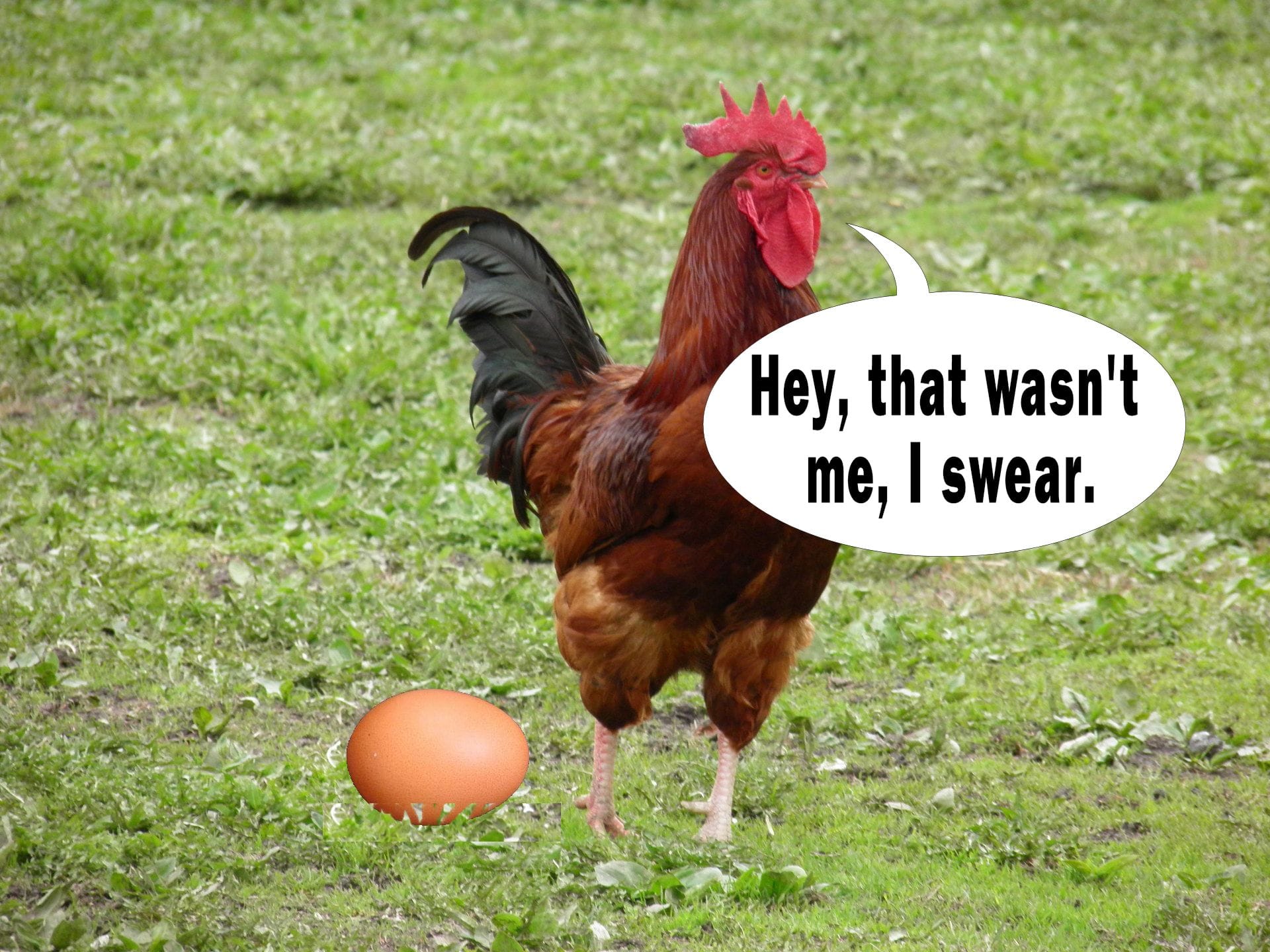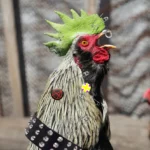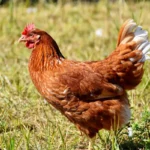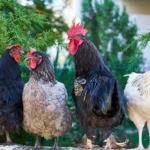The Rooster’s Role: Fertilization, Not Egg-Laying
Let’s address a common misconception: cockerels (male chickens) do not lay eggs. Hens (female chickens) are solely responsible for egg production. Roosters play a vital, but different, role: fertilization. Hens will lay eggs regardless of a rooster’s presence; however, those eggs will only hatch into chicks if fertilized by a rooster. Ever wondered about the culinary possibilities of a young rooster? Discover the surprising answer to the question, can you eat a cockerel?.
The Hen’s Egg-cellent Journey
A hen’s reproductive system is a marvel of nature. Over approximately 24-26 hours, a tiny yolk develops, travels down the oviduct, acquires layers of egg white (albumen), and is encased in a protective shell. This intricate process occurs irrespective of a rooster’s presence. He simply provides the genetic material for chick development, should fertilization occur.
Fertilized vs. Unfertilized: What’s the Difference?
Visually and nutritionally, fertilized and unfertilized eggs are nearly identical. The key difference lies in their potential. A fertilized egg, under the right incubation conditions (a broody hen or incubator), can develop into a chick. An unfertilized egg, like those typically found in grocery stores, will not hatch.
Can a Male Chicken Lay an Egg? Myth Busted!
The simple answer is no. Roosters lack the necessary biological equipment—ovaries—to produce eggs. This fundamental biological fact is undisputed within the scientific community. Only hens, with their complex reproductive systems, can lay eggs. While scientific understanding constantly evolves, the current evidence overwhelmingly suggests this conclusion is definitive.
Understanding the Confusion
The misconception might stem from roosters’ occasional mimicking of hen sounds, including pre-laying cackles, which can be misleading. Additionally, roosters’ visible presence in the coop might lead some to assume they participate in egg production. However, their role is limited to fertilization, providing the genetic component needed for a chick to develop.
The Science Behind Egg Production
Hens are born with two ovaries, but typically only one functions. This single ovary continually produces yolks, which then begin their journey down the oviduct. If a hen has mated with a rooster, fertilization occurs early in this process. As the yolk progresses, it’s layered with albumen, membranes, and finally, a shell. This remarkable process, taking roughly a day, allows hens to lay eggs regularly.
Why Did My Rooster Lay an Egg? Solving the Mystery
Let’s be clear: your rooster did not lay an egg. If you find an egg in the rooster’s area, a hen is the culprit. Several possibilities exist:
- Hidden Hen: A hen might be nesting in a secluded spot within the coop.
- Visiting Hen: A hen from a neighboring property might be accessing your coop. Tired of pesky critters raiding your garden? Explore effective and humane chipmunk and squirrel traps to reclaim your outdoor space.
- Unnoticed Pullet: A young hen might have matured and started laying without your knowledge.
Egg Abnormalities: A Hen’s Story, Not a Rooster’s
Oddly shaped eggs, thin shells, or even shell-less eggs are all related to the hen’s health, diet, or age, and have nothing to do with the rooster. Stress, nutritional deficiencies, or simply a young hen’s immature reproductive system can cause these variations.
Should I Keep a Cockerel With My Hens? Weighing the Pros and Cons
Introducing a cockerel to your flock significantly alters the dynamics. It’s a decision requiring careful consideration of the advantages and disadvantages.
Pros:
- Fertilized Eggs: Essential for hatching chicks.
- Potential Protection: May deter predators.
- Natural Social Order: Can contribute to a more structured flock.
Cons:
- Aggression: Can be aggressive toward hens and humans.
- Noise: Frequent crowing, potentially disruptive and violating local ordinances.
- Increased Responsibility: Requires careful management and monitoring.
Making the Decision
Whether or not to keep a cockerel is a personal choice. Weigh your desire for fertilized eggs against the potential challenges of aggression, noise, and increased responsibility. Consider your hens’ welfare, your neighbors’ peace, and your capacity for rooster management.
Cockerels and Egg Production: A Final Word
Cockerels do not lay eggs. This is a fundamental biological principle. Hens lay eggs regardless of a rooster’s presence. The rooster’s role is solely fertilization, crucial for hatching chicks but unnecessary for egg production itself. This understanding will empower you to make informed decisions about your flock’s composition and management.
- Unveiling the Enigma: Mansoureh Khojasteh Bagherzadeh’s Public Appearances & Private Life in Iran - July 18, 2025
- Unveiling the Mystery: Mansoureh Khojasteh Bagherzadeh’s Husband: A Rare Glimpse into a Private Life - July 18, 2025
- Unveiling Masoud Khamenei’s Mother: Power, Influence, and Iran’s Future - July 18, 2025

















2 thoughts on “Do Cockerels Lay Eggs? The Truth About Roosters and Egg Production”
Comments are closed.